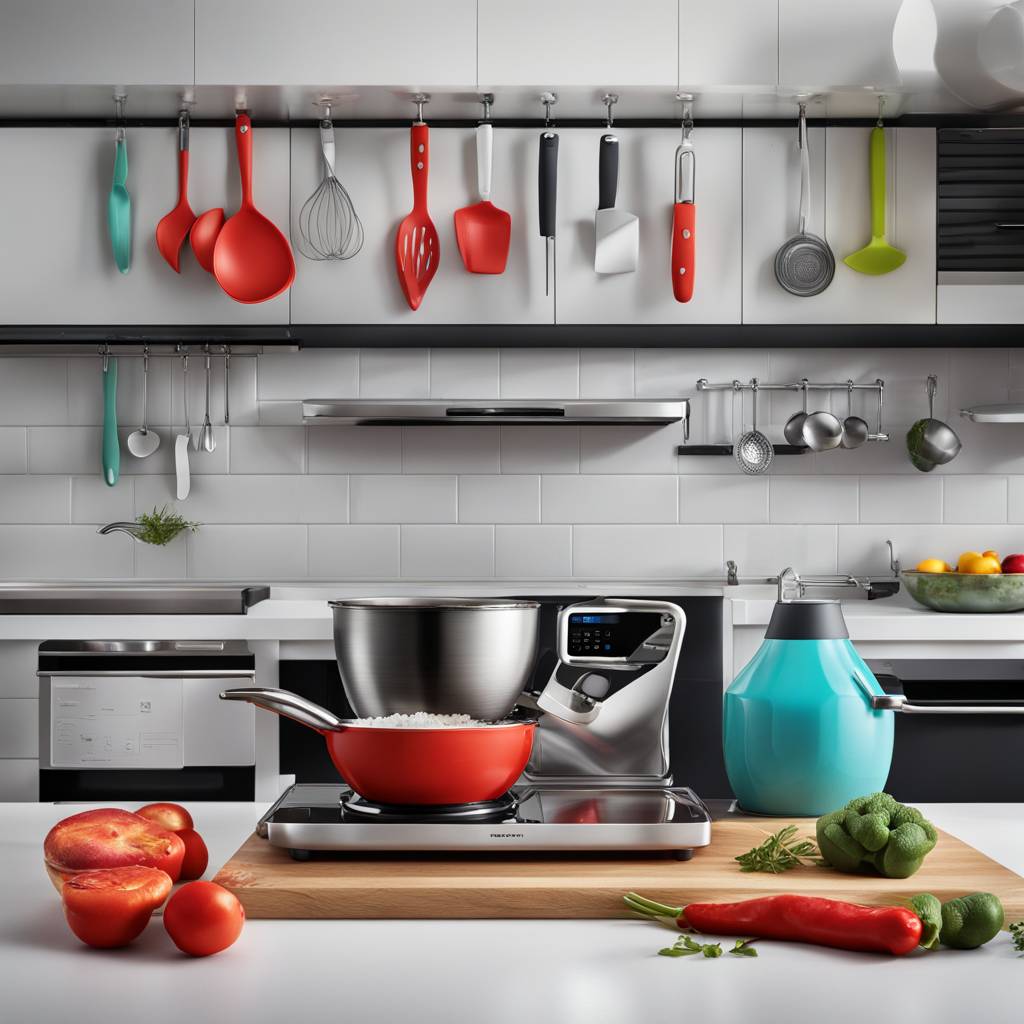CES, the consumer tech trade show held in Las Vegas, highlights the focus on smart kitchen technology in 2024. However, despite the increasing presence of smart kitchen appliances, there seems to be a lack of excitement and consumer demand. The smart kitchen category is predicted to reach $76 billion by 2033, but currently accounts for only 2% of the total global valuation in 2023. Smart kitchen devices are typically Wi-Fi enabled or AI-powered, allowing for remote control and enhanced functionality in the kitchen.
Various smart kitchen appliances have flooded the market, including blenders, food processors, refrigerators, and stand mixers. These devices offer features such as sensors for ingredient consistency, cameras to identify food contents, and mobile control for precise cooking. While these appliances showcase innovative technology, they come with a hefty price tag, raising questions about consumer adoption. The popularity of smart ovens, in particular, seems to be waning, with little evidence of strong demand despite impressive engineering and marketing efforts.
Smart ovens like Brava, Tovala, Suvie, and June have attempted to revolutionize cooking by automating the process and offering advanced features such as internal cameras, custom cooking programs, and AI integration. However, the high cost of these ovens, ranging from $250 to $1,300, coupled with limited consumer reviews, suggests a lack of widespread appeal. The smart oven market has faced challenges in connecting with consumers who prioritize traditional cooking methods and value the process of preparing meals from scratch.
While some smart kitchen gadgets have proven to be useful additions to daily life, such as smart blenders, meat thermometers, coffee makers, and composters, others have struggled to find a place in consumers’ homes. Devices like the Breville Joule smart oven strike a balance between smart features and practicality, offering autopilot cooking, notifications, and a rotisserie function. However, the high cost of these appliances remains a barrier to widespread adoption, as consumers weigh the benefits of convenience against the price tag.
Smart kitchen technology is still evolving and facing challenges in gaining mass acceptance. While innovations like smart fridge displays and advanced cooking features are promising, the current market landscape suggests that consumers may prefer a more hands-on approach to cooking. The foundational problem with overly smart smart kitchen appliances lies in the assumption that people who enjoy cooking want to relinquish control to automated devices. As the industry continues to navigate consumer preferences and price sensitivity, it remains to be seen which smart kitchen innovations will endure and become mainstream in the future.


